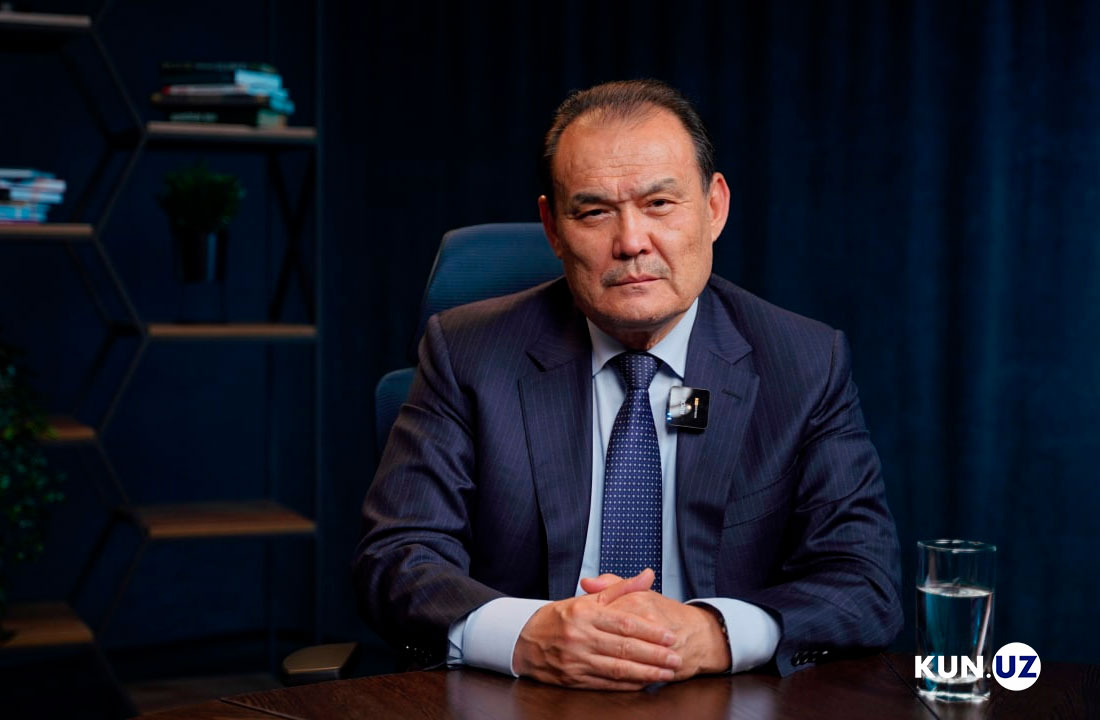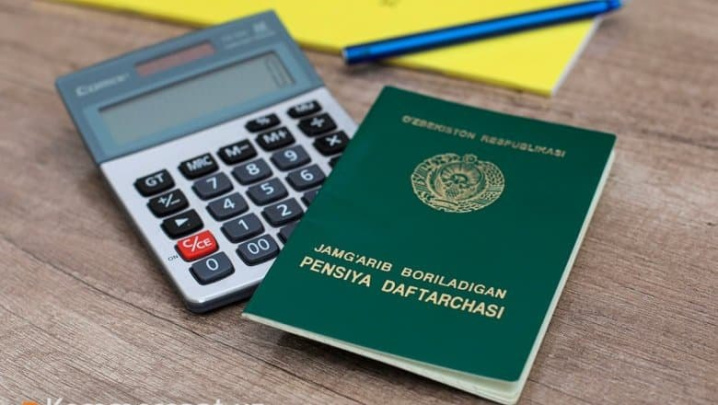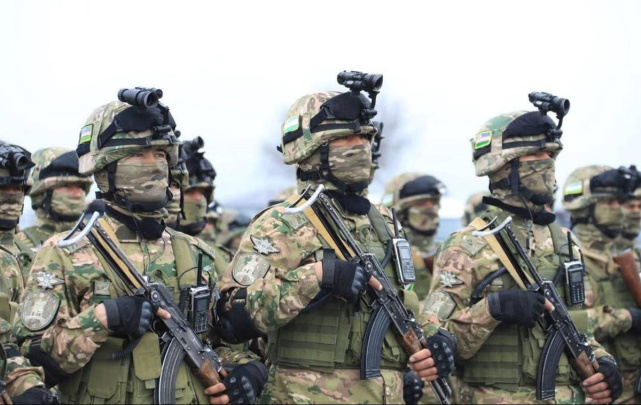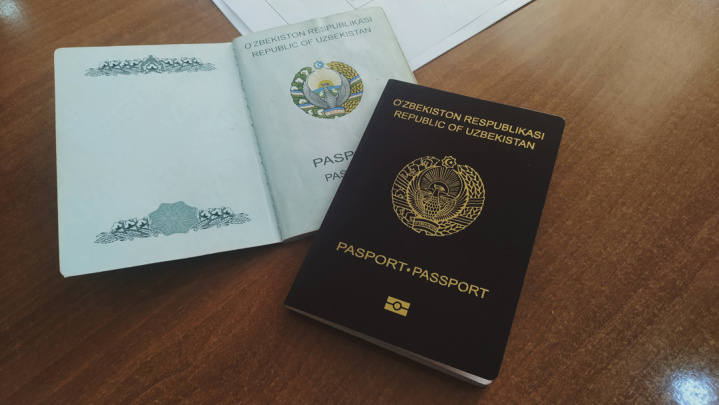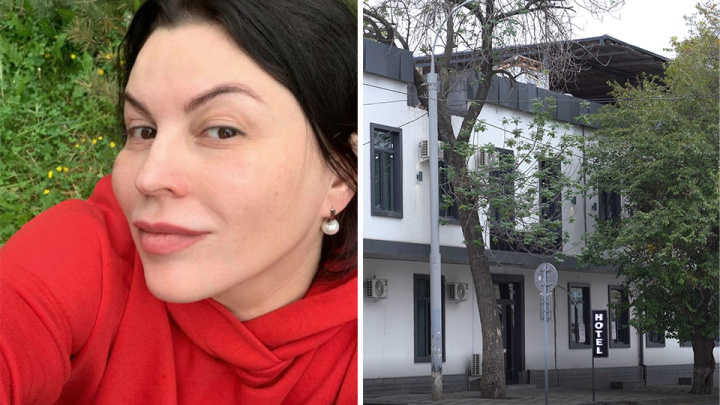In recent years, the cooperation of the Turkic countries has demonstrated its viability and led to the emergence of a united Turkic World as a new geopolitical reality. Inspired by historical brotherhood ties, common language, culture, and traditions, this phenomenon has produced significant political and economic results in the vast Eurasian continent.
History testifies that cooperation between Turkic people is nothing new. However, their interaction was interrupted for many decades until the end of the Cold War, after which five Turkish countries restored their independence. Immediately afterward, Turkic nations started to work on redefining a new system of relations among themselves. This was a great historical moment and a natural outcome produced by the choice of Turkic people, who did not want any more barriers and dividing lines between them, which existed for centuries.
Nowadays, Turkic countries are making great strides to support Turkic cooperation, which is developing in its own way and is on the rise in scale and scope. For example, in 2018, the number of countries participating in the Turkic cooperation process was four. Today, this number has increased to seven countries. On the other hand, 6 Summits of Heads of State were convened in the last four years, compared to only five Summits held in the 2009-2017 period.
The last Summit of Heads of State held in 2021 in Istanbul became a historical turning point for the unity of the Turkic World.
This outstanding result of the Turkic cooperation has not easily been achieved. Today’s fraternal and respectful relations between Turkic countries had to be built step by step through clear political choices, a decisive stance of leaders of Turkic states, and their courage to think ahead.
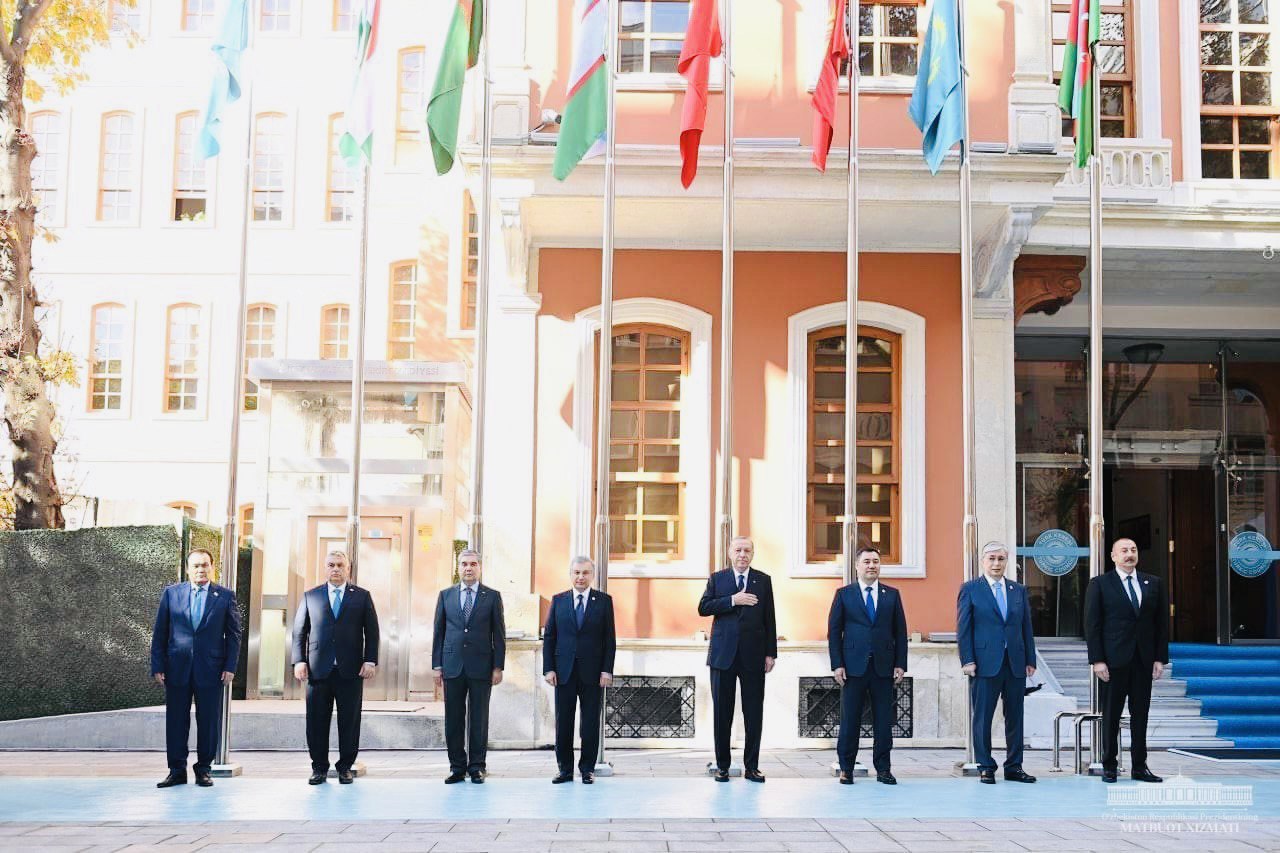
While the united Turkic World is a reality, it is not yet completed. It is a work in progress that aims at achieving economic integration of Turkic countries. Still, Turkic integration efforts should not be considered only in economic terms. Promoting joint cultural richness, values, principles, and interests is at the core of Turkic partnership. Turkic countries must learn, grow, and be bound together through their commonalities.
Further, Turkic integration efforts should establish Turkic geography as a center of attraction and enlightenment, which contributes to peace and stability in and around itself, plays a prominent role in solving global issues, and is safe and prosperous.
One should recognize that a better context for integrating the Turkic World has never been offered. Today, the Turkic countries’ relations are significantly imbued with the spirit of cooperation. Governments are implementing policy changes to move forward in the Turkic integration process. And citizens increasingly recognize that Turkic countries will be stronger as a whole and that Turkic integration invests in the well-being and the quality of people’s everyday life.
This article offers a short analysis of the general constellation and main players and mechanisms of Turkic cooperation and presents its main achievements and prospects for further development.
Milestones in the development of Turkic cooperation
The cooperation process of the modern Turkic World officially started in 1992 when the leaders of Turkic-speaking countries gathered for the first time in history in Ankara. It was an inspiring event for all Turkic nations that craved self-determination.
From 1992 to 2009, eight summits of the Heads of State were convened. They provided a unique platform for strengthening solidarity and guiding the comprehensive cooperation of the Turkic societies in different spheres. Further, these summits laid the ground for the gradual institutionalization of Turkic cooperation. In this context, in 1993, the International Organization of Turkic Culture (TURKSOY) was established, with headquarters in Ankara, to bring Turkic nations closer to each other through culture and art. On the other hand, the Parliamentary Assembly of Turkic States (TURKPA), established in 2008 with headquarters in Baku, became a real parliamentary working forum that upholds a strong commitment to Turkic cooperation.
Over the years, the increased collaboration in various domains required establishing a separate umbrella organization to coordinate the overall Turkic cooperation process. Accordingly, Kazakhstan undertook the role of facilitator in establishing the Cooperation Council of Turkic Speaking States (Turkic Council), officially launched in 2009, by signing the “Nakhchivan Agreement” between Azerbaijan, Kazakhstan, Kyrgyzstan and Türkiye. With the establishment of this Turkic organization, Turkic World has been transformed into an actor that actively produces its own regional policies.
Turkic Council later geographically expanded by granting observer status to Hungary in 2018 and joining Uzbekistan as a full member in 2019. Turkmenistan also became formally integrated into the Turkic organization in 2021. Today, it is encouraging to see that Turkic cooperation has become all-inclusive and that each Turkic country benefits from and contributes to the cooperation process.
One of the turning points of the Turkic cooperation was the 2019 Summit of Heads of State held in Baku. In this summit, the member states decided to move their relations from cooperation towards gradual integration, expressing their willingness to speak with one voice in the future. This is why Baku Summit is remembered as the first decisive step towards the united Turkic World.
Turkic cooperation’s most significant breaking point was the historic Summit of Heads of State held in Istanbul in 2021. The Summit made decisions that were crucial for the unity and integrity of the Turkish countries and that determined the future orientation of the Turkic World. First, the Turkic Council got its new name - the Organization of Turkic States (OTS) - and became a full-fledged international organization. Second, the objective of having a united Turkic World is realized by joining Turkmenistan. Third, the Summit adopted the Turkic World Vision – 2040, which supports Turkic countries’ integration efforts and lays out their cooperation’s long-term goals.
Today, the consolidation of relations among the OTS countries and the underlying architecture of cooperation under the OTS umbrella is more than visible. Expectations of all OTS countries are to benefit politically from stronger partnerships, economically from the expanded economic opportunities and improved connectivity, and geopolitically from greater stability and security.
The institutional set-up of cooperation
There are different high-level bodies available through which the Organization of Turkic States (OTS) brings its countries together for policy dialogue, technical cooperation, and joint action; for example, in the Council of Heads of State (CHS), the Council of Foreign Ministers (CFM), the Senior Officials Committee (SOC), and several sectoral ministerial conferences. OTS’s main decision-making body is the CHS, which is chaired by the country assuming the Chairmanship-in-Office. CFM supervises activities and financial issues, while SOC coordinates the work and endorses the draft documents for adoption by CFM and approval by CHS. There is also the Council of Elders, whose structure and impact were strengthened recently and which assumes the role of the permanent advisory-consultative institution.
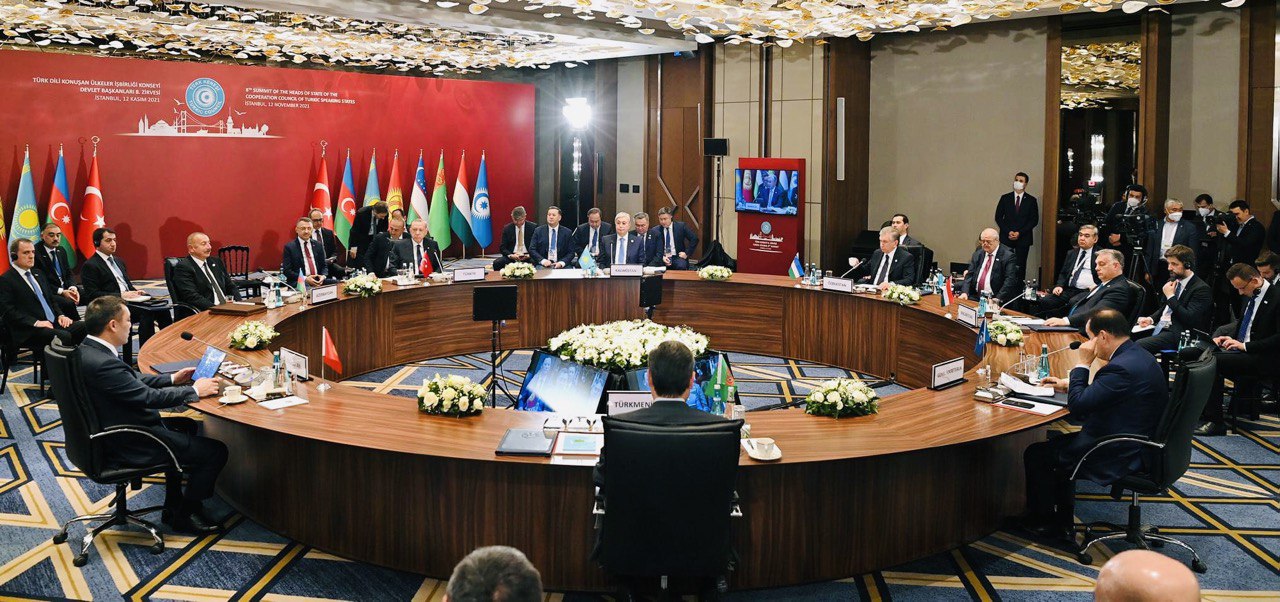
After 2011, sectoral cooperation flourished, with various ministerial meetings being launched until today, including ministers in charge of the economy, culture, education, transport, tourism, media, ICT, youth and sports, health, and energy. Particularly the last four years witnessed the intensification of ministerial meetings, the launching of new ones, and the creation of many Coordination Communities affiliated with line ministries. The ministerial meetings are also supported by the dedicated efforts of related Working Groups.
The cooperation under the umbrella of OTS is coordinated by the Secretary General, a Secretariat based in Istanbul, and the Representation Office in Budapest. The Secretariat acts as an operational arm in implementing the decisions of Heads of State and assists governments in realizing the agreed measures at other high-level forums.
The Secretariat also acts as an incubator for new regional initiatives in areas where needs are identified but cooperation mechanisms do not exist. Thus, besides above mentioned TURKSOY and TURKPA, the number of related and affiliated institutions and networks are grown to include the Turkic Academy, the Turkic Culture and Heritage Foundation, the Turkic Chamber of Commerce and Industry, the Organization of Turkic States Youth Platform, the Turkic University Union, and the Turkic Business Council.
The OTS countries’ dedication to cooperation has allowed the Secretariat to fulfill its mandate successfully. The Secretariat works closely with all its governments and develops and supports the implementation of many regional programs in different cooperation fields. Most importantly, over the years, the OTS Secretariat proved capable of guiding the policymaking process in response to evolving needs of OTS countries.
Three decades of Turkic cooperation with significant achievements
Three decades have seen much progress and a pretty strong record of achievements in Turkic cooperation. The historical ties among the OTS countries have been transformed into planned, institutional, and sustainable collaboration. Sectoral cooperation has been stepped up by launching several ministerial meetings. The OTS has established itself as a full-fledged international organization with an effective mechanism for furthering cooperation in different fields. The Turkic cooperation agenda is now more effectively communicated to the national administrations, stakeholders, and target groups.
Even the review of the last few years shows that the intensity of activities conducted by OTS and its related and affiliated institutions has become impressive. Below is a snapshot of striking examples of the significant achievements of the OTS cooperation:
Greater harmony in foreign policies: OTS countries have improved harmony in their foreign policies and are increasingly acting as a group in international matters. For example, the OTS demonstrated strong solidarity with the Azerbaijani people and supported Azerbaijan’s liberation of its territories in Karabakh;
The Organization of Turkic States supported Türkiye’s rightful military operation - Operation Peace Spring - in northern Syria and expressed solidarity with the Turkish Cypriot people in their aspirations for a peaceful, politically equal, secure, and prosperous future;
The Turkic countries showed their strong solidarity with the people and political leader of Kazakhstan during the January events;
Most recently, Turkic countries firmly supported the efforts of Kyrgyzstan to find a peaceful solution to the situation at the Kyrgyz-Tajik border.
Previously, OTS countries contributed to the “Astana Process” for the lasting political settlement in Syria.
Moreover, the sincere mediation efforts of Türkiye to end the Russian-Ukrainian war, exchange prisoners, and open the grain corridor were proudly supported by other Turkish countries.
Improved coordination of Turkic cooperation: The collaboration between the Secretariat and other related and affiliated institutions has evolved over the years into a substantive coordination process and growing synergy pertinent to deepening cooperation in the Turkic World. The OTS’s Coordination Committee of the Cooperation Organizations continues to play a critical role in this direction.
Increased collaboration with international organizations: The OTS Secretariat has developed close links with many significant international organizations, where membership overlaps with that of the OTS, to encourage greater coordination of different programs and projects. Further, the Representation Office in Budapest promotes the OTS and its activities in European countries and enhances relations with European institutions.
Deeper economic relations: From the beginning, OTS has worked on supporting its countries’ growth and development priorities and increasing trade and investments among them. In addition to regular relevant ministerial and working group meetings, OTS has enabled the strong engagement of the private sector and introduced more systematic cooperation with the business community. The Turkic Business Council’s activities and the Business Forums were essential in obtaining results in these efforts. Moreover, the decisions to establish the Turkic Chamber of Commerce and Industry and the Turkic Investment Fund are promising to further boost cooperation in the field of economy. Once it becomes operational, the Turkic Investment Fund will support the enhancement of SMEs’ capacities and foster entrepreneurship, including research and innovation.
Total exports of goods among the OTS countries reached $25.9 billion in 2021, from $13.9 billion in 2016. There are many other significant initiatives in the OTS agenda dealing with trade facilitation, trade liberalization in services, and the development of digital trade that are promising to increase this trade volume further.
The OTS has also developed its investment agenda to improve the business climate and increase intra-regional foreign direct investments. Moreover, close cooperation in industrialization, SME support, and smart business models has directed OTS countries’ economic cooperation.
Improved transport connectivity and customs operations: OTS promotes transport connectivity and customs cooperation among its countries at ministerial levels to eradicate obstacles to efficient, stable, and seamless transport across the Trans-Caspian Transport Corridor (Middle Corridor). In this regard, the Sister Ports project has established commercial and institutional cooperation between the major ports of the OTS countries, and the Caravanserai Project has contributed to facilitating border crossings procedures. The recent agreements on International Combined Freight Transport and on the Establishment of a Simplified Customs Corridor will further enhance the importance and efficiency of the Middle Corridor. Here it should be noted that the ongoing digitalization of transport and transit procedures continues to develop.
ICT, alternative energy, and space cooperation are high on the agenda: ICT and alternative energy have recently become essential elements of Turkic cooperation. Cyber-security, fortification of fiber optic infrastructure, utilization of satellite services, collaboration among the Space Agencies, and mutual recognition of certificates on e-signature are promising OTS topics in the ICT field. This year OTS has also initiated cooperation in the IT field.
As for alternative energy, cooperation in renewable energy, investment in this field, and sharing knowledge in the training of nuclear engineers, nuclear infrastructure, and uranium mining are among the top priorities.
Promising results in education, culture, sport and the diaspora sphere: Turkic cooperation attributes utmost importance to increasing societal contacts and instilling the collective conscience in the Turkic World. In this context, the OTS has invested considerable efforts in mobility issues to bring people closer to each other.
OTS has introduced unique programs in education that boost academic cooperation and encourage student, teacher, and researcher mobility. For example, the Turkic University Union has generated a comprehensive cooperation process in higher education, whereas the Orkhun Exchange Program led to the significant mobility of academicians and students. On the other hand, the preparation of common history, geography, and literature books by the Turkic Academy is itself a considerable achievement.
Turkic cooperation actively performs in the cultural scene to promote Turkic culture, language, tradition and values, and preservation of the common heritage. The TURKSOY and the International Turkic Culture and Heritage Foundation play a crucial role in this area.
Through enhancing youth cooperation, the OTS has created opportunities for young people to travel and mutually explore their countries, get to know their peers, and cooperate on projects in different fields, including sports. Youth camps and festivals, the Young Leaders Forum, and the Young Entrepreneurs Forum are the leading platforms that prepare a future Turkic generation with an increased awareness of the Turkic World.
The university sports games (Turkic Universiade) and support for the revival and protection of traditional sports through the World Nomad Games have also become a trademark of Turkic cooperation.
OTS has also invested considerable efforts in improving cooperation with and coordination among the Turkic diaspora communities in education, culture, and sport.
Media and information cooperation on the rise: Media is a crucial tool to empower Turkic integration. So far, collaboration among public broadcasting institutions has become systematic. Efforts were invested in sharing programs and video materials and preparing short videos on “100 People of the Turkic World” and “Sacred Places of the Turkic World.” This year media cooperation gained momentum through the decision of relevant ministers and high officials to organize an international media forum on an annual basis, intensify training and exchange programs for media professionals, and establish an alliance of Turkic news agencies and an association of journalists.
Health cooperation became an inseparable part of the OTS agenda: The outbreak of Covid-19 in 2020 necessitated launching health cooperation and coordination to fight the pandemic. The OTS countries were fast to demonstrate strong leadership and solidarity in coming up with a common response. The Azerbaijani chairmanship initiated the Extraordinary Summit themed “Solidarity and Cooperation in the fight against the Covid-19 pandemic” on 10 April 2020. Later, several related ministerial meetings were organized in a short time.
Accordingly, the activities undertaken by the OTS Secretariat in the health area have enabled a promising start to implement agreed measures, including a) contributing to improving healthcare services in public health by enabling sharing experiences and good practices; b) supporting the national health systems’ capacities to prevent, detect, and respond to transnational health threats; c) organizing training and capacity building programs for the health workers and health institutions; d) safeguarding a regular supply of essential medicines and other medical goods and e) initiating a collaboration in the healthcare industry that will contribute to better healthcare facilities and products.
The established Health Coordination Committee and its Supply Chain Group have become central to seeking cooperation in producing medical equipment and pharmaceuticals. Moreover, the formation of the Health Scientific Group under the Health Coordination Committee was also an inventive step to jointly monitor the pandemic’s developments and produce appropriate joint responses.
New momentum in tourism cooperation: The OTS countries have enormous tourism potential with their rich cultural and historical heritage and diverse natural attractions. “The Modern Silk Road Joint Tour Package” project was developed as a tool to tap and flourish this tourism potential. For this purpose, various events, exhibitions, festivals, training programs, and touristic tours were implemented.
Tourism cooperation was recently intensified by launching the “Turkic World Tourism Capital” project to promote tourism at the city level. On the other hand, the “Tabarruk Ziyorat” project is expected to increase tourist interest in the holy places of the OTS countries. This year, ministers in charge of tourism have agreed to launch the “Best Tourism Villages of the Turkic States” initiative and establish relations among the associations of the travel agencies.
Launching of religious cooperation: The OTS countries decided this year to initiate collaboration among their official religious authorities. So far, three Meetings of the Heads of Institutions in charge of Religious Affairs of the OTS have been held. Religious cooperation is expected to evolve around Turkic-Islamic solidarity, and the Turkic peoples’ spiritual, moral, and cultural values.
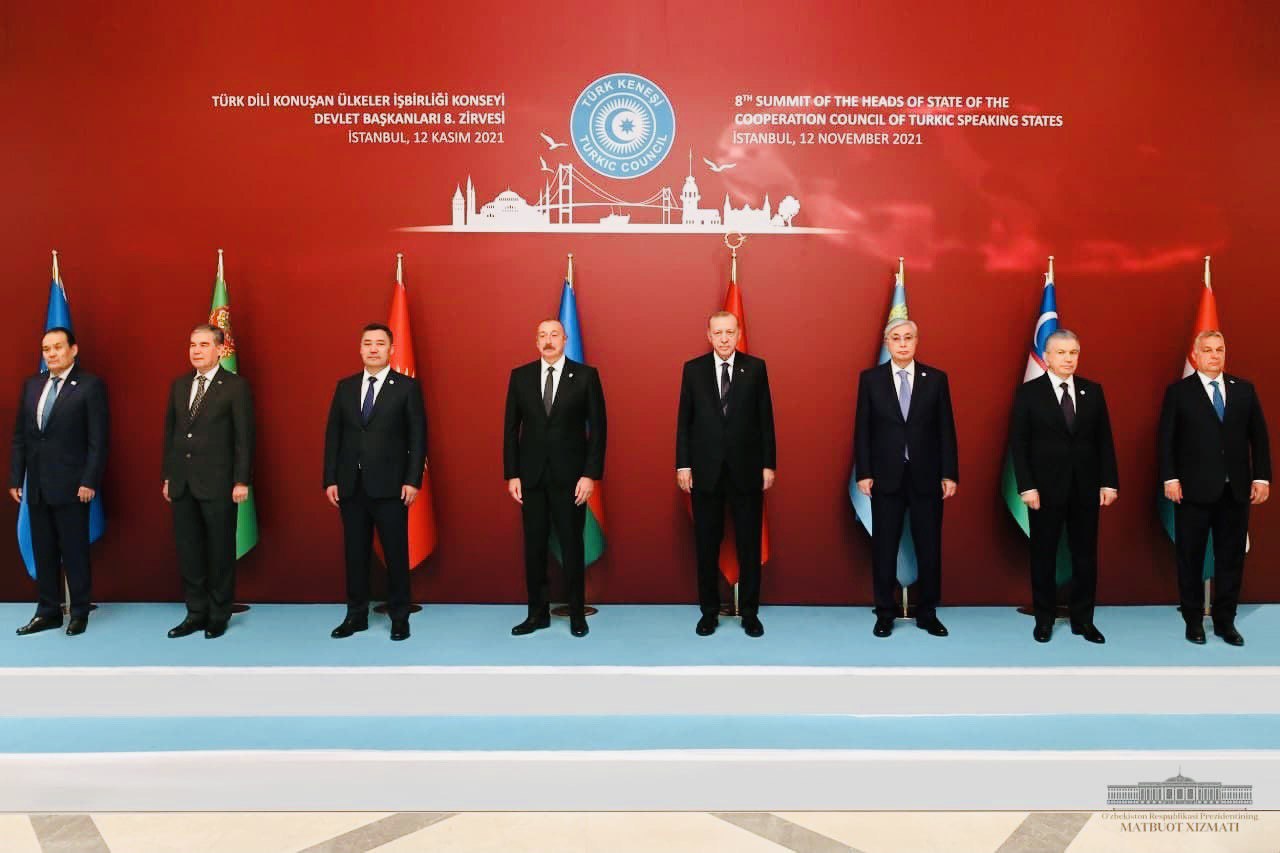
Turkic World Vision – 2040
The adoption of the Turkic World Vision - 2040 (Vision 2040) is one of those historical moments when the countries decide to build a better future together through more open, more systematic, and more targeted relations among themselves.
Constructed on the achievements attained, in-depth knowledge of the needs of OTS countries, and comprehensive consultations with national authorities, Vision 2040 brings clear goals for the future, which will shape the strategic orientation of Turkic cooperation for the period until 2040.
In essence, Vision 2040 moves the relations of OTS countries from cooperation toward gradual integration. Thus, Turkic countries are expected to build their own economic area by enabling the unobstructed flow of goods, services, capital, and highly skilled labor and intensifying cooperation in vital sectors such as transport and energy, where interdependence is evident and unavoidable.
In this regard, Vision 2040 is a call for a) developing political cohesion to act as one on a wide range of international issues, b) supporting the convergence of specific sectoral policies and all relevant regulatory frameworks, c) achieving full trade integration, d) creating single investment space e) enabling better digital technologies’ usage and realizing digital integration, f) upgrading transport and energy connectivity and g) increasing social and cultural interactions by enabling greater mobility of people.
Supporting the intra-regional innovation ecosystem, green transformation, human capital upgrades, and better integration into the global value chains are also among the priorities of Vision 2040.
The future work of OTS will be structured around the multi-annual strategies to achieve the long-term goals of Vision 2040. As a first step, the OTS has prepared the Turkic States Strategy for 2022-2026, which is expected to be endorsed at the upcoming Summit of Heads of State on 11 November 2022 in Samarkand.
Towards the better common future
Cooperation under the OTS’s umbrella has grown into constructive and comprehensive collaboration, which takes place at various levels and in multiple fields. Therefore, it is difficult to imagine Turkic countries without acting and moving together in the future. Besides, OTS has already been recognized as a successful cooperation platform and voice of the Turkic World. Further, the weight of OTS in its region and the global arena is steadily growing.
Adopting the Turkic World Vision – 2040 has introduced a new period of Turkic cooperation. Technically, cooperation became more targeted and focused on areas with the greatest potential for joint action. Strategically, this document established the ground for Turkic countries’ gradual integration. This will undoubtedly be a long and challenging process. However, the Turkic World’s cooperation is moving progressively, as will be reflected on 11 November 2022 in Samarkand at the Summit of Heads of State.
Samarkand Summit will be a meeting that completes the historical decisions taken at Istanbul Summit last year. Amendments to the Nakhchivan Agreement will be introduced to better reflect the new stage of Turkic cooperation. Samarkand Summit will focus on deepening economic cooperation, improving transport connectivity, and digitalization to further inspire OTS countries’ socio-economic development. The Summit will also pay the way for operationalizing the Turkic Investment Fund in the upcoming months.
Samarkand Summit will also make substantial progress in areas of political and security cooperation in line with the related goals of the 2040 Vision. Moreover, the defense industry collaboration and cooperation in the justice sphere will be encouraged.
Together with this Summit, Uzbekistan will assume the OTS Chairmanship and declare 2023 as the year of the “Rise of Turkic Civilization.”
These significant achievements in Turkic cooperation are encouraging. Turkic countries should continue pursuing their integration agenda and prepare to respond to the challenges of the 21st century. The political decisions and actions we make today will determine for many years whether Turkic World remains on the path of its integration.
I am confident that Turkic countries will remain determined to cooperate and come out of this with a stronger, better integrated, and more united Turkic World.

